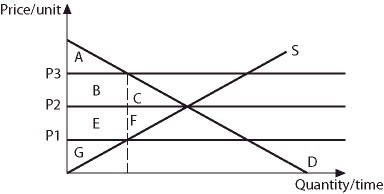Traditional Keynesians tend to favor
a. monetary policy over fiscal policy because of the effectiveness of central banks.
b. monetary policy over fiscal policy because it reduces interest rates..
c. fiscal policy over monetary policy because it doesn't impact interest rates.
d. fiscal policy over monetary policy because of the liquidity trap.
e. none of the above.
D
You might also like to view...
What are the main characteristics that make it more likely for a cartel to enforce agreements among participating members?
What will be an ideal response?
We know that industrial countries tend to trade with other industrial countries. This pattern counters the:
a. preference theory of comparative advantage. b. factor abundance theory of comparative advantage. c. concept of intraindustry trade. d. product life cycle theory of comparative advantage. e. human skills theory of comparative advantage.
A pure monopoly sells 6 units of a product per day at a unit price of $15. If it lowers the price to $14, its total revenue increases by $22. This implies that its sold output increases by ________.
A. 4 units per day B. 3 units per day C. 2 units per day D. 1 unit per day
Refer to the information provided in Figure 4.6 below to answer the question(s) that follow.Equilibrium in this market occurs at the intersection of curves S and D. Figure 4.6Refer to Figure 4.6. The area of [E + F + G] represents
Figure 4.6Refer to Figure 4.6. The area of [E + F + G] represents
A. consumer surplus. B. producer surplus. C. consumer surplus minus producer surplus. D. consumer surplus plus producer surplus.